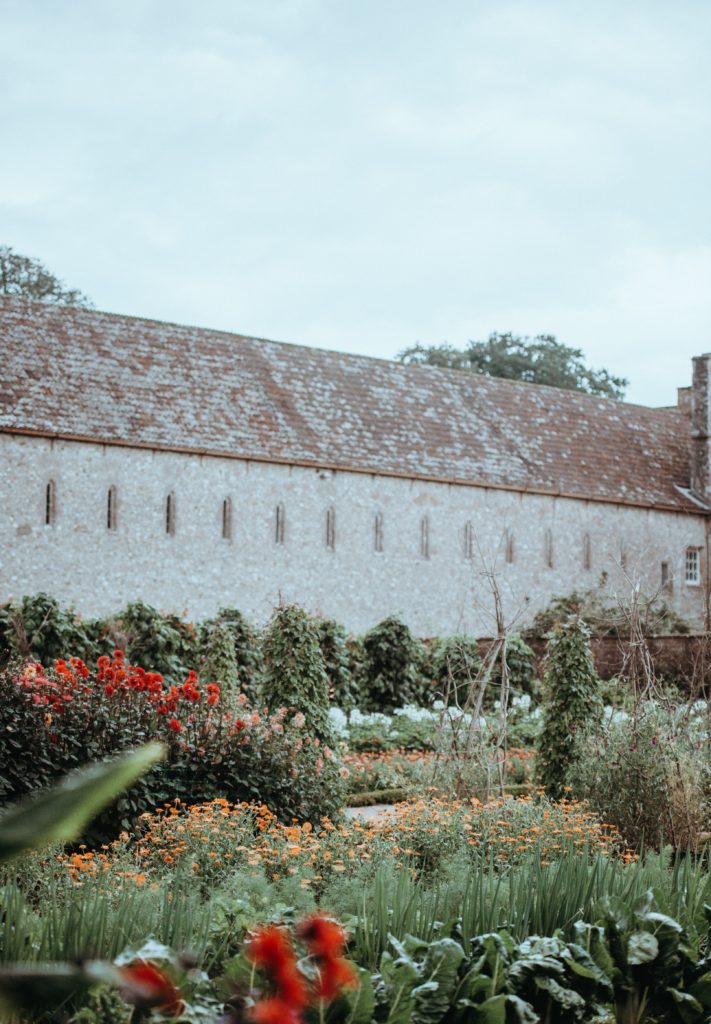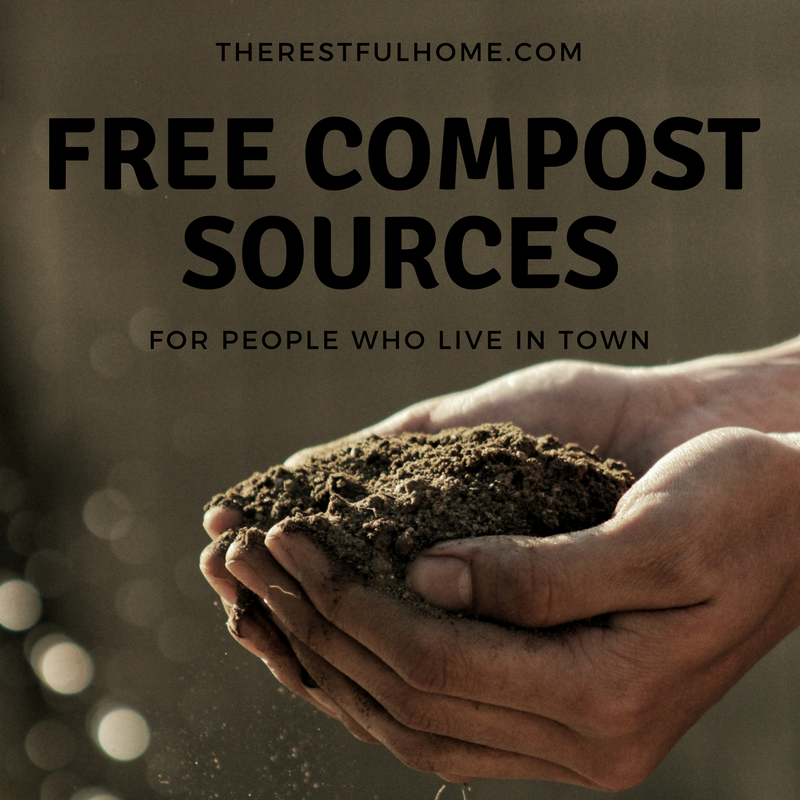
Photo by Annie Spratt.
Gardening organically can seem a frustrating endeavor for those of us who live in town. No fertilizers or pesticides mean that we need to get busy sourcing compost and natural fertilizers like manure. We don’t have the same free compost sources that those who live out in the country often have. (The next-door dairy farm with endless supplies of manure, the hay field with leftover rotting hay that makes the perfect mulch, etc.)
However, there are places you can find free compost if you keep your eyes open. Here are some options for free compost and mulch if you, like me, don’t have the luxury of living near a farm.
Free Compost Sources for People Who Live in Town
1. Your Neighbor’s Yard
During the fall, we are all busy raking our yards free of leaves. We rake, we bag, we set the bags out for collection. But wait–those are our most valuable mulch and compost resources of all! This fall, we covered our raised beds AND made a small pile for mulch next year, all with leaves from our yard and those of a neighbor. We brought him back his bags, so he was happy to not have to keep buying bags. We also begged a few more bags from a different neighbor (and if we’d had room in our tiny backyard, we could have snagged even more around our neighborhood). People are usually really happy to find out you’re making a good use of anything natural. I think there’s an instinctive dislike in most of us to filling landfills with natural parts of our environment.
2. Coffee Shops
Our local Books-a-Million has a coffee shop that will give you bags of used coffee grounds for free at the end of the day. (About 6 PM) In another town, I know a man who has given the local McDonald’s a five-gallon bucket. They fill it with grounds over several days and then call him to let him know his bucket is full. Free nitrogen for your compost! And earthworms love coffee grounds.
3. Feed Lots
Some feed lots, often located on the outskirts of town, will have a few horse stalls. Horses constantly produce free compost! If you have a truck (unfortunately, we do not), you can load up with plenty of manure for free. You may also be bringing home grass seeds if the manure is fresh. (It’s better if it has been resting for a couple years.) Also, if it’s fresh, you’ll have to take care to cover it with leaves at first so the neighbors don’t complain about the smell. Turn it over in your compost pile enough to give it oxygen to continue the breakdown process.
4. Autumn Decorations
Those hay bales your church bought for decoration by the front door? Once they begin to deteriorate, offer to cart them away. They are perfect mulch, and you can even grow a decent garden in piles of hay/straw!
5. Your Lawn
Save that grass you just cut–it’s great mulch for blocking out weeds! It will also rot down to enrich your compost. Just be careful about putting it around young plants. Just like manure, freshly cut grass can get really hot.
6. Newspapers
Newspapers make great homes for worms. You can soak them (minus the shiny inserts) in water, then either tear them into strips for your compost pile or arrange them around your plants and then hide them under a layer of leaves or dried grass. Don’t throw away those free newspapers that get thrown onto your front stoop!
7. Local Water and Waste Departments
Our water department is in charge of making compost out of all the trees, etc. that are dumped out there at its facility. Such compost often has human waste in it that has been treated, so find out before using it how the compost is treated. Does it still possibly have pathogens in it? If so, it’s not safe for your vegetable garden. You can read an article here from Rodale discussing the pros and cons of using biosolids. Do your research! We decided that our city’s compost had been treated enough to be safe, although we waited on root vegetables like potatoes for the first year of growing in it. And at $10 a cubic yard, it was incredibly cost-efficient.
Photo by Gabriel Jimenez.
More Ideas for Finding Free Compost:
Ask your friends if they’ll save newspapers for you, call to see if your local zoo will let you collect droppings from herbivorous animals, or ask a small grocery store if you can pick up rotten vegetables for your compost pile. Find out if your city’s recycling department chips up wood mulch. Once you start looking around, you’ll find out that there are countless ways to source free compost right here in town!
Please let us know of more places to find free compost in the comment section below! Thanks!
You may also be interesting in reading this article on edible landscaping.

